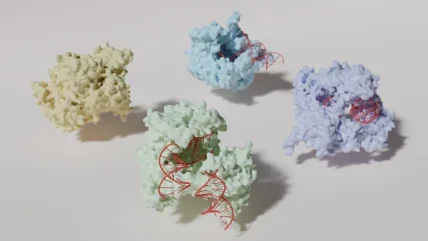
Synthetic biology company Biomatter has closed a €6.5m seed financing round to use generative artificial intelligence (AI) for enzyme design.
Biomatter is an enzyme design company developing enzymes for medicine, agriculture, chemical biomanufacturing, and life science sectors.
The round saw participation from current investors Practica Capital and Metaplanet, along with business angels and industry experts.
Lithuania-based Biomatter said that the firm has developed the first fully functional enzymes created with generative AI to support new research and development avenues.
Biomatter’s Intelligent Architecture platform enables the creation of enzymes from the bottom-up, overcoming the limitations of traditional natural enzymes and broadening their applications.
The latest investment round will support Biomatter in further enhancing its platform’s capabilities and developing entirely new enzymes.
The synthetic biology company is partnering with companies like Thermo Fisher Scientific, BASF, and Neogen to expand its global customer base.
Biomatter co-founder and CEO Laurynas Karpus said: “Enzymes will play a paramount part in the future of bioeconomy – they are the enabling piece that ultimately allows us to create new molecules, cells, and organisms for the world.
“The unique enzymes we have successfully developed for our global partners so far demonstrate our capability to go far beyond the existing enzyme improvement paradigm. At Biomatter, we believe that the unlimited capacity to design new enzymes will help to build a better tomorrow for everyone.”
In 2019, Biomatter demonstrated that its generative AI tool could analyse large enzyme datasets to design entirely new, functional enzymes.
The enzyme design firm’s Intelligent Architecture platform is designed to develop enzymes from scratch. It can help build the enzymes from the ground up or work on existing protein structures.
Using the platform, the synthetic biology company develops customised enzymes for various industries and help lower the development cycle from years to weeks.
Biomatter has partnered with Kirin, a global nutrition and health company, to produce human milk oligosaccharides (HMOs) using novel engineered enzymes.
Inventure investment manager Kevin Lösch said: “The application of AI in protein design will be transformational, addressing major current design limitations.
“Early results from projects with global companies show that Biomatter’s technology is dramatically accelerating innovation in this transformative field, reshaping the implementation of enzymes in incumbent and new structures.”






